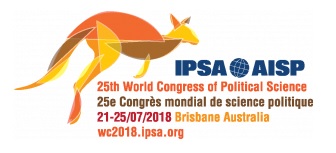Panel: Populism and Social Discourse (July 24)
Title: ‘Librul tears’, self-victimisation, and the politics of blame under Trump
Abstract:
Trump’s campaign call to drain the ‘Washington swamp’ of the oppressive, corrupt profiteers who implemented the ‘disaster’ of Obamacare was well-received by his audience, with “drain the swamp” chanted at rallies and repeated ad nauseum on the internet afterwards, by critics and followers alike. Similarly, the portrayal of Democratic candidates as deserved recipients of blame for perceived failures affecting the American heartland struck an emotional nerve, with Hillary Clinton and Obama both demonised as the illegitimate would-be destroyers of the USA–and Trump’s demographic marked as their victims.
This paper addresses the question ‘what is the relationship between blame and self-victimisation in the political context, and what are the implications for in-group identity and emotions?’. It does this by drawing from research into self-victimisation and victim-blaming in cases of sexual assault, referencing social psychology and the contribution of emotions to identity formation, and conducting intertextual discourse analysis of speeches featuring blame and self-victimisation as delivered by Trump as a populist leader in both his campaign and since taking office.
It is argued that Trump portrays his supporters as victims, notably as victims of economic and jobs crises that are the fault of ‘liberal elite’ typified by Clinton and Obama. Assignment of blame by Trump to liberal parties makes the link between the in-group as ‘victims’ and liberals as ‘perpetrators’ clear, irrespective of the actual site of responsibility for a given outcome. This grants the group an inviolable status of ‘victimhood’, and Trump a status of ‘victims’ champion’. Each of these statuses gives rise to an emotional response, entrenching a group identity defined partly in opposition to ‘liberals’ as the source of crises.
This research contributes to an understanding of blaming as a political mechanism, particularly as it relates to the mobilisation of emotions in the course of identity construction, and bridges work on populism, crises, and emotions.
For more information:
http://wc2018.ipsa.org/events/congress/wc2018/home
https://wc2018.ipsa.org/events/congress/wc2018/session/gs11-populism


